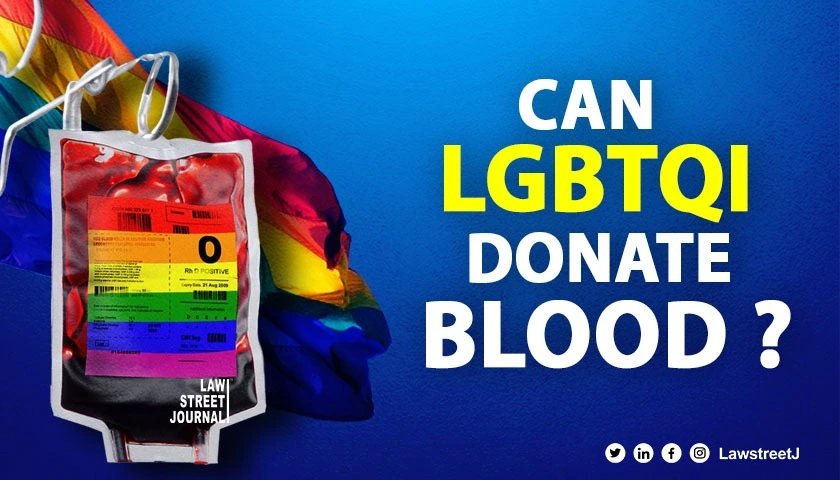NEW DELHI: The Supreme Court on Friday issued notice to the Union government and others on a plea by a gay man questioning constitutional validity of Blood Donor rules of 2017, which permanently restrained transgender persons, female sex workers and LGBTQI persons from donating blood.
A bench of Chief Justice of India D Y Chandrachud and Justices J B Pardiwala and Manoj Misra sought a detailed response from the Centre and the National Blood Transfusion Council (NBTC) and National Aids Control Organisation (NACO), on the petition filed by Sharif D Rangnekar, who claimed himself to be gay person.
Rangnekar, the director of Rainbow Literature Festival, claimed guidelines violate the right to live with dignity, and do not afford full membership of living in a society to LGBTQ+ community and thus, reduces them to second class citizenship.
He contended a blanket prohibition is a violation of the right to equality, dignity and life protected under Articles 14, 15, 17 and 21 of the Constitution.
The petitioner stayed the guidelines are based on a highly prejudicial and presumptive view taken with regard to gay men in the 1980s in the United States of America.
Also Read: Overreaching Jurisdiction: A critique of the Supreme Court's adventurism for LGBTQIA rights
However, majority of countries, including the USA, the United Kingdom, Israel and Canada, amongst others came out with revised guidelines for blood donors which do not impose a blanket restriction on gay men or gender queer persons from donating blood, he pointed out.
Scientifically too, a blanket restriction on blood donation is based on an assumption that a particular group of persons may be suffering from sexually transmitted diseases, his plea said.
"The medical technology and education, especially in the field of haematology has progressed by leaps and bounds in the 21st Century and screening of blood donors is conducted for every donation before a possible transfusion. In such era, a blanket prohibition emanating from a highly discriminatory view of gay persons, does not stand to reason," the plea added.
Rangnekar sought a direction from the court to declare that clauses 12 and 51 of General criteria under blood donor Guidelines and Blood Donor Referral, 2017, is discriminatory and unconstitutional as it excludes gay / LGBTQI persons, permanently, from donating blood to others.
He pleaded the guidelines should allow gay and LGBTQI persons to donate blood, with reasonable restrictions based on ‘screen and defer’ or ‘assess and test’ policies.















